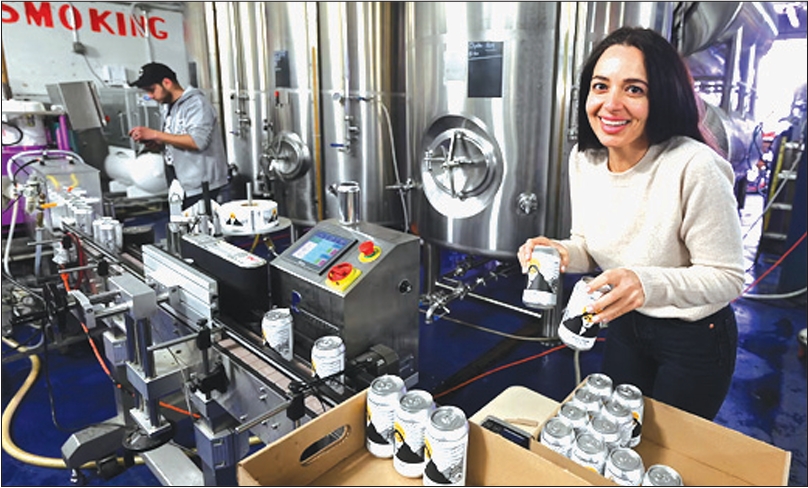Joseph Louei, the name the hotel owner uses in Britain, was condemned by the judge for the “exploitation of a very vulnerable young man who was disabled.”
The judge ordered Louei to pay the chef more than £40,000 ($64,000) in compensation.
Louei owns the three-star Astor Hotel in Plymouth, England, a small seaside resort town in the far southeast of England. It is best known in the United States as the port from which the Mayflower sailed, bringing the Pilgrims to North America in 1620, where they landed at what became known as Plymouth Rock.
Louei faced an employment tribunal that heard he threatened to sack his 23-year-old chef, Adam O’Dee, “for taking too much off the end of a cucumber.”
They also heard that Louei grabbed frozen bread rolls and threw them around the kitchen after wrongly blaming O’Dee for not taking them out of the freezer.
O’Dee suffers from Aspergers Syndrome and dyslexia. He eventually quit the job for which he was paid £95 ($150) for a 40-hour week – less than half the minimum wage.
O’Dee won his claims for unfair dismissal, disability discrimination and illegally low pay.
The tribunal judge, John Hollow, said in the judgment: “In relation to the discrimination claim, it beggars belief that a businessman of 25 years’ standing should accept that a very vulnerable individual could properly be employed at £90 or £95 per week for a full week’s workÖ.
“To expect him to work such hours for this level of pay, and to do additional work on top of this [without pay], stretches our credibility [sic, credulity] to breaking point.
“This was nothing more than exploitation of a very vulnerable young man. This was done because Mr. O’Dee was disabled and Mr. Louei thought he could get away with it.”
O’Dee started work at the Astor Hotel in February 2010 as a trainee chef having been introduced by Remploy, whose role is to help people with difficulties find work. He stayed until last July.
The Plymouth Herald said he was asked on many occasions to work extra hours on weekends and busy times like Christmas, but was not paid; Louei claimed this was so he could get extra experience.
Judge Hollow said: “We have to say that this is an extraordinary and novel proposition to this tribunal. It is both extraordinary and incomprehensible that the claimant should work substantial additional hours for no remuneration, not even the flat hourly rate.”
O’Dee frequently raised the issue of pay and wrote a grievance letter to Louei, who said that if he gave Adam the same pay “everyone else would be unhappy.”
Louei said he feared the compensation order may “finish” his business.
However, Louei said he would fight to get “justice”.
Louei said, “When I came here, I couldn’t read or speak English. I started as a kitchen porter, did 80 hours a week just to stay here.
“It wasn’t about the money, it was about learning. Then I made it and I could help people. I felt for him [O’Dee] because I have been there. Adam said. ‘I want to be like you.’ I said you will never be like me – you will be better than me. You can learn from what I know and then add to it.”
























